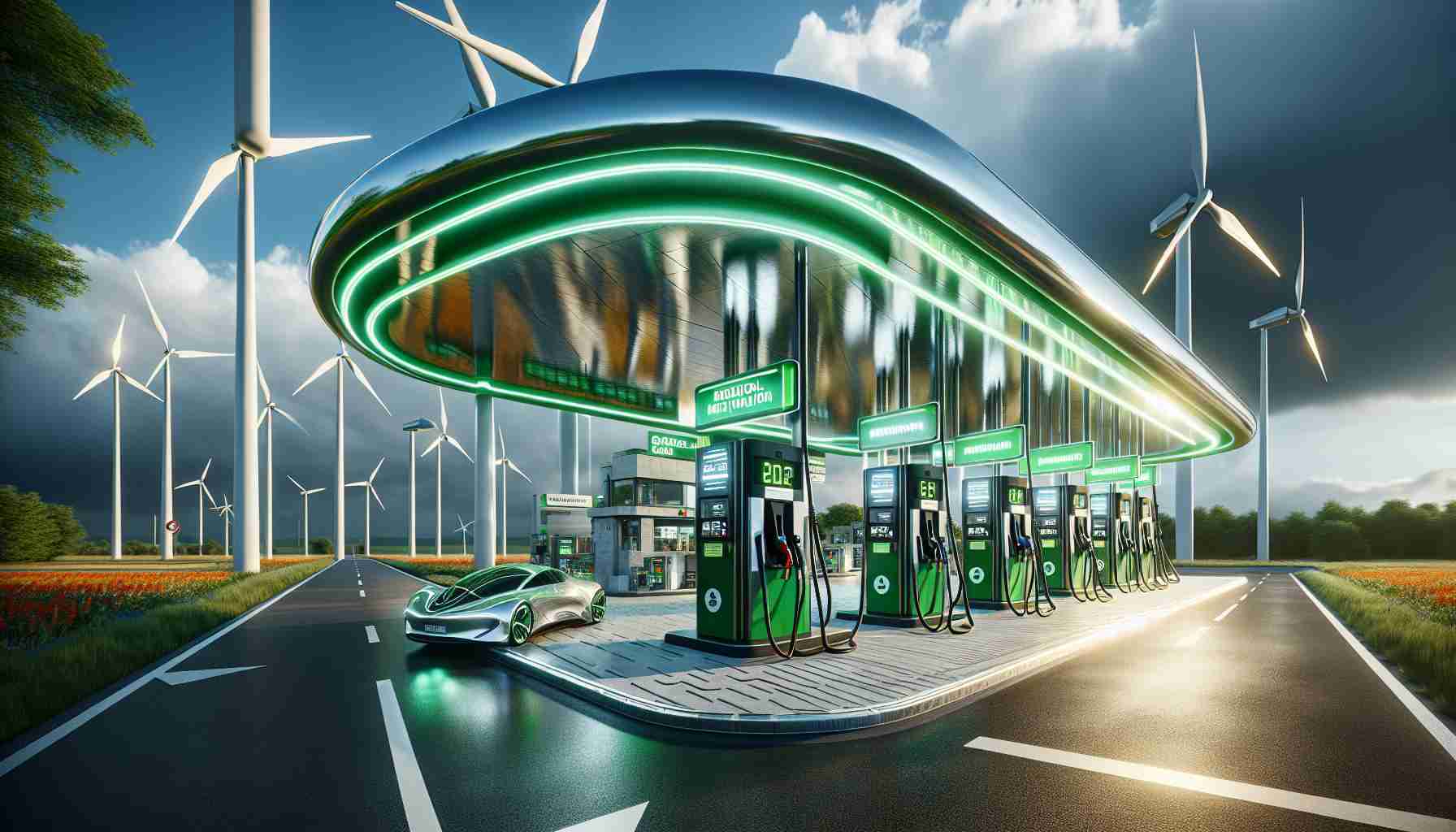The Shift from Hydrogen to Renewable Methanol
Germany is rewriting the energy narrative. For decades, hydrogen has been viewed as the ultimate clean fuel, known primarily for producing only water as a byproduct. However, recent revelations suggest that Germany is now turning its focus towards renewable methanol, a potential game-changer in the fight against climate change.
A recent study indicates that methanol derived from green hydrogen could significantly aid Germany’s decarbonization efforts. This versatile substance is essential for the chemical sector and could address the country’s current hydrogen production limitations, ensuring a more stable supply of green fuel.
Unlike hydrogen, renewable methanol boasts easier transport and storage. Its production is less energy-intensive, and it emits fewer greenhouse gases compared to traditional fuels. Experts highlight methanol’s safety and efficiency as key factors for its use in heavy transportation and shipping industries, which are crucial for achieving broader climate goals.
Germany’s pivot away from hydrogen could also reshape international energy policies. If successful, renewable methanol might appeal to other nations seeking effective pathways to reduce carbon footprints, challenging hydrogen’s dominance in the clean fuel space.
As Germany potentially increases its annual methanol production from 1.1 million to 23.7 million tonnes by 2045, the implications for global energy strategies could be profound, urging countries to adopt more diverse and reliable energy solutions.
Germany’s Energy Evolution: Embracing Renewable Methanol Over Hydrogen
Germany is at the forefront of revolutionizing its energy landscape as it pivots from hydrogen to renewable methanol. While hydrogen has long been heralded as a clean fuel with water as its only byproduct, recent developments suggest that renewable methanol may emerge as a more effective solution in the fight against climate change.
The Case for Renewable Methanol
Recent studies indicate that renewable methanol production from green hydrogen can significantly bolster Germany’s decarbonization efforts. This shift is particularly relevant given the limitations currently faced in hydrogen production and distribution.
# Advantages of Renewable Methanol
– Easier Transport and Storage: Renewable methanol is simpler to transport and store compared to hydrogen. While hydrogen requires high-pressure tanks or cryogenic temperatures, methanol can be transported using existing infrastructure for liquid fuels, thus reducing costs and logistical complexities.
– Lower Production Energy Requirements: The production of renewable methanol is less energy-intensive than that of hydrogen, making it a more efficient option for large-scale energy applications.
– Reduced Greenhouse Gas Emissions: Methanol-derived fuels promise lower greenhouse gas emissions when compared to traditional fossil fuels, making them a viable option for heavy-duty transportation and maritime industries.
Transforming Energy Policies
Germany’s strategic move towards renewable methanol could have far-reaching impacts on international energy markets. Should this transition prove successful, it might set a precedent for other nations to follow suit, potentially reshaping global energy policies and diminishing hydrogen’s longstanding dominance in the clean fuel sector.
Projected Growth in Methanol Production
Germany anticipates a significant increase in its methanol production capabilities, raising projections from 1.1 million tonnes currently to an ambitious 23.7 million tonnes by 2045. This ramp-up not only addresses domestic energy needs but also positions Germany as a leader in sustainable energy solutions on the world stage.
Market Insights and Future Predictions
As renewable methanol takes center stage, several market trends and predictions are emerging:
– Market Development: The global renewable methanol market is expected to expand significantly, driven by increasing awareness of sustainability and government policies aimed at reducing carbon emissions.
– Investments in Technology: Innovations in carbon capture and storage (CCS) will provide additional avenues for methanol production, enhancing its appeal as a green fuel alternative.
Challenges and Considerations
While the promise of renewable methanol is undeniable, there are several factors that could influence its adoption:
– Infrastructure Adaptation: Investment in infrastructure to support the new energy systems is essential. This includes retrofitting facilities to handle methanol and expanding logistics capabilities.
– Regulatory Framework: Establishing a robust regulatory framework that supports renewable methanol production and usage will be crucial in encouraging investment from private sectors.
– Public Acceptance: Gaining public support for renewable methanol and educating consumers on its benefits compared to hydrogen and fossil fuels will be fundamental to its widespread adoption.
Closing Thoughts
Germany’s strategic shift towards renewable methanol exemplifies an evolving understanding of clean energy solutions. As it increases production and addresses potential obstacles, other nations may take note and consider similar paths toward decarbonization. This pivotal move could mark the beginning of a new chapter in the global energy narrative.
For more insights on renewable energy solutions and innovations, visit Germany’s Energy Policy.


